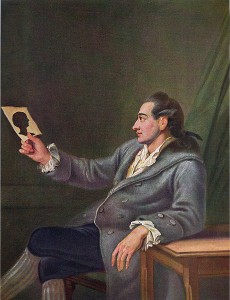That Goethe is being read as part of CC202 speaks to his profound impact on literature. A writer whose works mimicked his life (or perhaps the opposite), Goethe felt a longing, a hiraeth perhaps, for something truehe wanted experience for experiences sake. Yet, can it be recounted when Goethe was last mentioned outside of the Core Curriculum? It seems that his legacy has been, quite ironically, lost amongst posterity’s search for good literary experiences.
This week, Adam Kirsch of The New Yorker writes on this topic, first lamenting the loss of Goethe as a standard-repertoire author, and then explaining why Goethe should be the subject of a literary revival.
Goethe’s fame notwithstanding, he is strangely neglected in the English-speaking world. English readers are notoriously indifferent to the poets of other cultures, and Goethe’s poems, unfortunately, seldom come across vividly in translation. Whether this quip holds is up to the reader to decide; however, its point retains truth: what has happened to Goethe in our modern culture? Goethe’s life is marked by a certain hedonism that seems apropos for the current generation especially. During a time when the youth are so subscribed to experiencing the different offerings of life, it seems Goethe would be a perfect fit; but he remains less than a thought in the minds of many today.
The question arises: so what? Is it a problem that Goethe is not in the mainstream of today’s culture? This question is left to the readers. Perhaps Goethe’s disappearance is a mere fact of society’s changing views and ideals; after all, fame is usually decided by popular opinion. Are there books then that should be kept in the foreground despite popular opinion? That is up to you.
A hat-tip to Dr. Green for alerting us to this article.
PS: Did you know about Boston’s Goethe-Institut? It’s a center for German cultural activity in the area; online at http://www.goethe.de.

